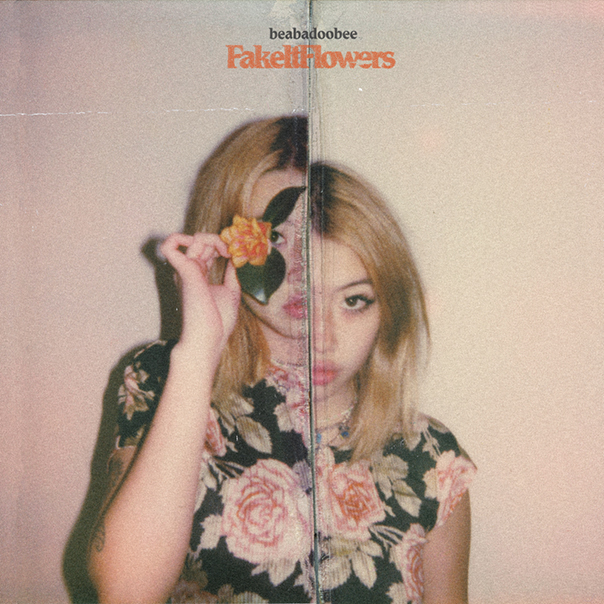ALBUM REVIEW: Beabadoobee unveils a sonic super bloom on ‘Fake It Flowers’
Bea Kristi—better known as Beabadoobee—quickly became a Gen Z icon after getting her first guitar in 2017 and writing single “Coffee.” The cozy lo-fi serenade, which she self-released, stole the hearts of hundreds of thousands—becoming a staple to bedroom pop playlists and TikTok videos alike. Beabadoobee’s online presence also extends across social media, where she shares everything from a new chord she’s learned, to grainy, 2 a.m. song demos with her followers. From the very start, she’s had a whole generation listening.
Fake It Flowers
Beabadoobee
Dirty Hit, Oct. 16
8/10
Beabadoobee’s highly anticipated debut album, Fake It Flowers, follows suit of fellow bedroom pop counterparts in that it features a developed sound—though it isn’t the first instance of hearing the British-Filipina artist in a studio flanked by a full band. The 2019 EP Loveworm and Space Cadet already marked the early stages of her sonic transition, showcasing her love for DIY and ‘90s aesthetics. But the full-length record still reveals so much about Beabadoobee’s artistry.
What sets Beabadoobee strikingly apart from others is her unapologetic realness. Anyone can wear a heart on a sleeve, but Beabadoobee bedazzles hers all over something she sewed from scratch. Her end result is one-of-a-kind and true to herself. Yes, Fake It Flowers is saturated with influences from ‘90s grunge and Britpop to early 2000s teen pop—but there’s no denying Beabadoobee’s own flair in these songs.
The album opens with two singles. “Care” draws on that early 2000s sheen right away. Its melody is sugar and spice, with Beabadoobee’s tender approach exploding into a much edgier refrain. A callout to fake friends, this song recalls the spunk of pop-punk idols like Skye Sweetnam. “Worth It” continues to soak in aughties nostalgia, this time teasing at the idea of a fling. The melody is flirty and a little bit messy—much like an actual fling—and Beabadoobee’s confessional lyricism puts that into context perfectly.
The next songs introduce some recurring themes from previous Beabadoobee releases. “Dye It Red” alludes to hair color playing a huge part in Beabadoobee’s identity and self-expression. “Let me cut my hair and dye it red if I want to/ I haven’t found myself so comfortable/ I’m not stopping now,” she sings. It calls back to 2019 single “I Wish I Was Stephen Malkmus” and how she longs to march to her own beat.
Then there’s the short and sweet “Back To Mars,” which not only references her affinity for outer space, but also fixates on the romantic nature of playing with someone’s hair—much like on Loveworm track “Apple Cider.” Both songs reinforce the young spirit that is consistently present in Beabadoobee’s music, but that all takes an unexpected twist moving forward.
On “Charlie Brown”—a song about old bad habits—Beabadoobee puts her angst on overdrive, taking elements of grunge sludginess and hard rock rage to hear her like never before. At a constant face-off are chugging riffs and sharp hi-hat strikes that ultimately go unmatched against Beabadoobee’s screamed vocals. If one song had to represent Beabadoobee’s departure from her lo-fi comfort zone, this would definitely be a strong contender.
After the heaviness of “Charlie Brown,” the following tracks offer a moment to cool down. “Emo Song” touches up on “old ways” once more, but in the form of a mellow ballad. “Sorry” lingers on the slow burn and—for the first time—features string arrangements to carry out accented minor notes. Then, bonafide love songs “Further Away” and “Horen Sarrison” lean toward dream-pop with their washed-out pedal effects and glistening undertones—again bringing in orchestral strings for extra emotion.
All of this foreshadows what is perhaps the most poignant moment in the album: “How Was Your Day?”
The third-to-last song is completely acoustic, throwing things back to Beabadoobee’s lo-fi beginnings. Her delicate singing on this obviously comes from a soft place—but one that evokes a lot of hurt. With utmost despondence, she sings, “You used to miss me/ Guess it’s not hard to believe/ That things have to change like the weather and the days.”
“Together” bounces back with resilience, delivering punchy riffs and all-around bright tones. And at last, “Yoshimi, Forest, Magdalene” opens up with some ad-lib that’s quintessential Beabadoobee, and then just goes haywire with its singsongy hook and a tempo that constantly switches gears. It’s a fun sendoff that sums up Beabadoobee’s eccentric songwriting as we know it.
After only releasing singles and EPs over the last three years, Beabadoobee did a pretty solid job on her first ever full-length album. Fake It Flowers can feel more like a collection of songs as opposed to a linear succession of tracks in the way that it goes down all sorts of sonic avenues—but its visceral nature feels right. Beabadoobee lets her range of influences and ideas shine, stepping away from bedroom pop to achieve a sound as big as her rock star dreams-turned-reality.
Follow Chloe Catajan at Instagram.com/riannachloe and Twitter.com/riannachloe.

